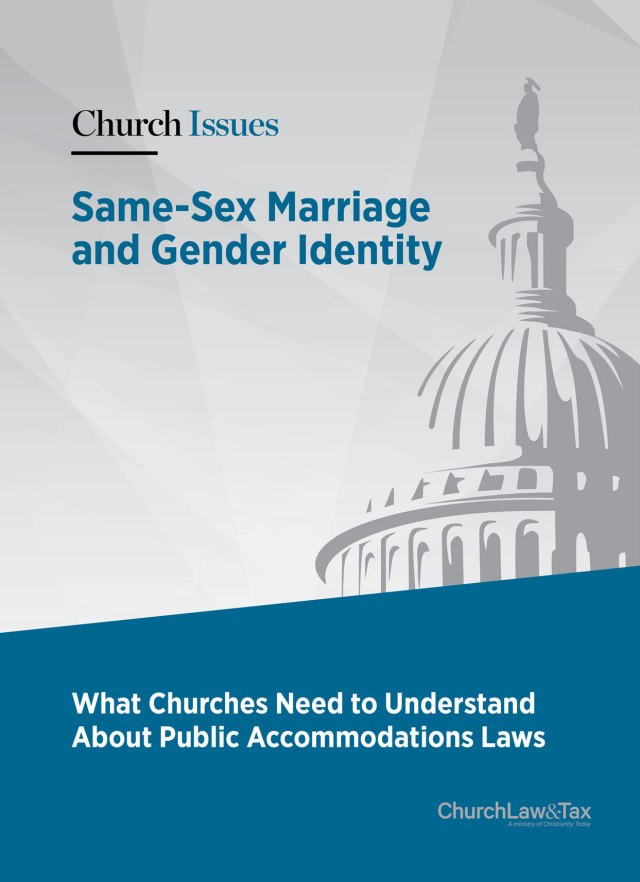Key point 3-04. All states permit clergy to perform marriage ceremonies. However, some states permit only “ordained” or some other classification of clergy to perform marriage ceremonies. It is important for clergy to determine if they are legally authorized to perform marriages under applicable state law. In addition, clergy must be aware of the legal qualifications for marriage and any license and reporting requirements prescribed by state law.
A federal appeals court ruled that Indiana’s marriage solemnization statute was an unconstitutional preference for clergy over secular leaders. Indiana Code § 31-11-6-1 specifies who may solemnize a marriage. The list includes religious officials designated by religious groups but omits equivalent officials of secular groups, such as humanist societies:
Marriages may be solemnized by any of the following:
- A member of the clergy of a religious organization (even if the cleric does not perform religious functions for an individual congregation), such as a minister of the gospel, a priest, a bishop, an archbishop, or a rabbi.
- A judge.
- A mayor, within the mayor’s county.
- A clerk or a clerk-treasurer of a city or town, within a county in which the city or town is located.
- A clerk of the circuit court.
- The Friends Church, in accordance with the rules of the Friends Church.
- The German Baptists, in accordance with the rules of their society.
- The Bahai faith, in accordance with the rules of the Bahai faith.
- The Church of Jesus Christ of Latter Day Saints, in accordance with the rules of the Church of Jesus Christ of Latter Day Saints.
- An imam of a masjid (mosque), in accordance with the rules of the religion of Islam.
Anyone not on this list who purports to solemnize a marriage commits a crime. The state accommodates some religions, such as the Quakers (the Society of Friends, which the statute calls the “Friends Church”), that do not have clergy, but does not accommodate others, such as Buddhists, that lack clergy-led structures.
The Center for Inquiry in Indiana, a nonprofit that describes itself as a humanist group promoting ethical living without belief in a deity, and one of its members (the “plaintiffs”) filed suit in federal court. The plaintiffs claimed that the Indiana solemnization of marriage statute violated the First Amendment of the United States Constitution by preferring clergy over secular leaders.
The Center maintains that its methods and values play the same role in its members’ lives as religious methods and values play in the lives of adherents. The Center has certified 23 persons in the United States as “secular celebrants” of non-religious marriages. One of these individuals resides in Indiana, and has been asked by members to solemnize their marriages, which she wants to do but can’t because Indiana does not recognize humanist leaders as “clergy”—nor is the Center willing to classify itself as a “religious organization” in order to allow its secular celebrants to be treated as “clergy”.
The federal court ruled that Indiana’s statute did not violate the First Amendment. The plaintiffs appealed.
A federal appeals court agreed with the plaintiffs that the Indiana marriage solemnization law was unconstitutional because it favored some religions to the exclusion of other religious and secular groups. The court concluded that the marriage solemnization law would be rehabilitated, and would no longer offend the Constitution, if the state legislature simply added notaries public to the list of persons who can solemnize marriages: “The current statute discriminates arbitrarily among religious and ethical beliefs. Plaintiffs say that they would be satisfied if notaries were added to the list; nothing in humanism makes it inappropriate for a leader (or any other member) to be a notary public. Since Indiana has never given a reason for excluding notaries, while including every mayor and clerk of court, that hardly seems an excessive request.”
What This Means For Churches:
The court noted that three states (Florida, Maine, and South Carolina) authorize humanists to solemnize marriages by becoming notaries public. Four states (Alaska, Massachusetts, Vermont, and Virginia) allow anyone to solemnize a marriage, and another six (Colorado, Kansas, Montana, Pennsylvania, New York, and Wisconsin) allow the couple to solemnize their own marriage. This case demonstrates that while states may allow clergy to solemnize marriages, they may not withhold this privilege from some religious or nontheistic groups. However, the constitutional infirmity can be corrected by adding notaries public to the list of persons authorized to solemnize marriage. Center for Inquiry, Inc. v. Marion Circuit Court Clerk, 2014 WL 3397217 (7th Cir. 2014).
